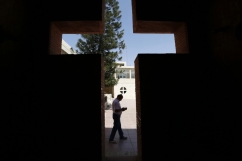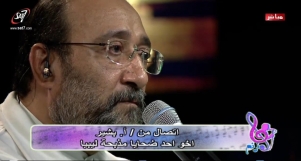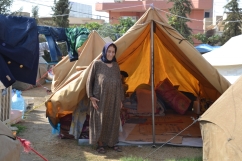One year ago, Islamic State militants captured the town of Qaraqosh in Iraq, forcing thousands – many of them Christians – to flee. Kurdish troops withdrew on August 6 2014, leaving ISIS free to move in overnight and take four Christian-majority towns, less than a month after the group overran nearby Mosul.
Qaraqosh had been home to Iraq's largest Christian community, with at least a quarter of the country's Christian population living in the city and its surrounding towns. Its exodus prompted further concerns about the future of Christianity in the Middle East, and calls for the international community to open their borders to those fleeing persecution.
Father Nageed Michaeel, a Dominican priest, was among those who left Qaraqosh on August 6, walking 40km on foot to Erbil in the middle of the night with around 50,000 others.
"It was terrible. There were women and children with no food and water," he recalled of the journey in an interview with Kurdish news agency Rudaw. Of the situation in Erbil, he said the tens of thousands left stranded were getting desperate. "We are in a tunnel and cannot see the light," he said.
No Christians are believed to remain in in Qaraqosh, and it is still in the hands of ISIS. In December of last year, an Iraqi priest told the Sunday Times that Bahnam Wa Sara and Al Kiama churches in the town were being used by ISIS to hold prisoners.
"These two churches are being used as prisons and for torture," Abu Aasi said, speaking from Baghdad where he had fled.
"Most inside are Christians and they are being forced to convert to Islam. ISIS have been breaking all the crosses and statues of Mary."
Despite intense persecution, however, there have been incredible stories of forgiveness from those forced to flee. Speaking to SAT-7 in March, a 10-year-old girl from Qaraqosh, Myriam, said she would ask God to forgive the militants who threatened her family's life.
"God loves everybody," she said. "I'm not angry with God because we left Qaraqosh, I thank him because he provided [for] us. Even if we're suffering here, he provides for us." She ended her interview – which has been watched hundreds of thousands of times online – with a song about how much she loves Jesus.
A year on from the invasion, and ISIS continues its bid to create a caliphate. This week, an estimated 250 Syriac Orthodox and Syriac Catholic Christians were abducted by the group in Syria, and barely a day goes by without stories of hideous brutality emerging.
Many of those who left Mosul, Qaraqosh and the Ninevah Plane last year fled to neighbouring countries, including Jordan. Tomorrow, August 8, marks the first anniversary of Iraqi refugees arriving in Jordan – there are currently around 58,000 according to the UNHCR – and Pope Francis wrote to the country, thanking it for welcoming those displaced.
"Many times I have wanted to give voice to the atrocious, inhumane and inexplicable persecution of those who in many parts of the world – and especially among Christians – are victims of fanaticism and intolerance, often under the eyes and silence of all," the pope said in the letter, addressed to Latin Patriarch Fouad Twal of Jerusalem and to Bishop Maroun Lahham, the patriarchal vicar for Jordan.
"They are the martyrs of today, humiliated and discriminated against because of their fidelity to the Gospel."
The Pope thanked those "who took on the care of these brothers and sisters, not turning their gaze away". Christians helping refugees in Jordan "proclaim the resurrection of Christ by sharing their suffering and giving them aid," he continued. "You bow down to their suffering, which risks suffocating hope."

















